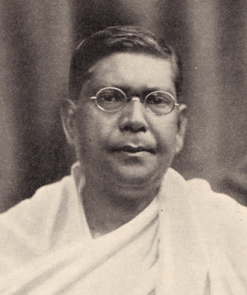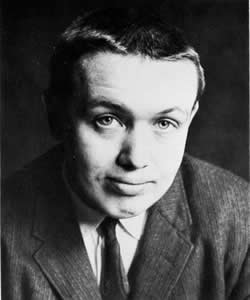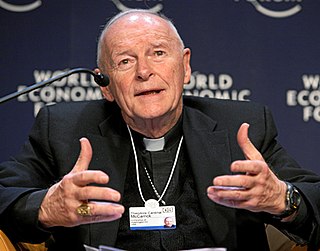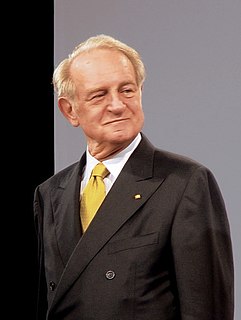Ein Zitat von Chittaranjan Das
[Über Swami Vivekanada:] Ich sage nicht, dass die Botschaft von Swami das letzte Wort in unserem Nationalismus war ... Aber sie war gewaltig – etwas mit einer unsterblichen Herrlichkeit für sich. Wenn Sie seine Bücher lesen, wenn Sie seine Vorträge lesen, werden Sie sofort von seiner Liebe zur Menschheit, seinem Patriotismus beeindruckt, nicht von abstraktem Patriotismus, der aus Europa zu uns kam, sondern von ganz anderer Natur, etwas Lebendigeres, etwas, das wir in uns spüren uns selbst, wenn wir seine Schriften lesen.
Verwandte Zitate
Durch die Konsultation von Büchern, ob von toten oder lebenden Autoren, werden viele Versuchungen zur Gereiztheit und Opposition, die bei mündlichen Konferenzen auftreten, vermieden. Ein Autor kann sich nicht ungefragt in seinen Dienst drängen, noch kann er häufig der böswilligen Absicht verdächtigt werden, seine Leser mit seinem Wissen oder seinem Witz zu beleidigen. Dennoch ist die Angewohnheit, uns mit anderen zu vergleichen, während sie im Bereich unserer Leidenschaften bleiben, so weit verbreitet, dass Bücher selten mit völliger Unparteilichkeit gelesen werden, sondern von denen, von denen der Autor so weit entfernt ist, dass es um Leben und Tod geht gleichgültig.
Auf meiner eigenen spirituellen Reise wurde ich ein Swami auf dem hinduistischen Weg der Bhakti. In der hinduistischen Tradition ist ein Swami ein Mönch, der auf das reguläre Familienleben verzichtet, um die ganze Welt zu seiner Familie zu machen, und seine ganze Energie in spirituelle Praxis, Hingabe an Gott und Dienst an der Menschheit stecken lässt.
Es gibt drei unfehlbare Möglichkeiten, einem Autor eine Freude zu machen, und die drei bilden eine steigende Skala von Komplimenten: 1. Ihm sagen, dass Sie eines seiner Bücher gelesen haben; 2, um ihm zu sagen, dass Sie alle seine Bücher gelesen haben; 3, um ihn zu bitten, Ihnen das Manuskript seines bevorstehenden Buches lesen zu lassen. Nr. 1 gesteht Ihnen seinen Respekt zu; Nr. 2 erkennt Sie seiner Bewunderung an; Nr. 3 trägt dich klar in sein Herz.
Samuel Beckett ist die Person, von der ich am meisten lese – sicherlich die Person, deren Bücher ich am meisten besitze. Wahrscheinlich 800 oder 900, vielleicht 1.000 Bücher nur von Samuel Beckett. Von ihm, über ihn, in verschiedenen Sprachen usw. usw. Notizbücher von ihm, Briefe von ihm, die ich besitze, persönliche Briefe – nicht an mich, aber ich habe einen Haufen Korrespondenz von ihm gekauft. Ich liebe seinen Humor und bin immer wieder überwältigt von seiner Syntax und seinen Ideen. Also lese ich diese weiter.
Ich habe nur drei Bücher von Stephen King gelesen. Als ich 10 war, las ich „The Long Walk“, eines seiner pseudonymen Bachman-Bücher. Mit Anfang 20 las ich während eines Familienurlaubs „The Dark Half“ und lernte dabei ein Wort, das ich nie vergessen habe: Psychopomp. Jetzt habe ich „22.11.63“ gelesen.
Wir wissen, dass Gott überall ist; Aber gewiss spüren wir seine Gegenwart am meisten, wenn seine Werke im größten Ausmaß vor uns ausgebreitet werden. und am wolkenlosen Nachthimmel, wo Seine Welten ihren stillen Lauf nehmen, können wir Seine Unendlichkeit, Seine Allmacht, Seine Allgegenwart am deutlichsten erkennen.
Der Meister der Lebenskunst macht kaum einen Unterschied zwischen seiner Arbeit und seinem Spiel, seiner Arbeit und seiner Freizeit, seinem Geist und seinem Körper, seiner Information und seiner Erholung, seiner Liebe und seiner Religion. Er weiß kaum, was was ist. Er verfolgt einfach seine Vision von Exzellenz bei allem, was er tut, und überlässt anderen die Entscheidung, ob er arbeitet oder spielt. Für ihn tut er immer beides.
Er hielt das Buch an seine Nase. Es roch nach Talkumpuder von Old Spice. Es machte normalerweise Spaß, Bücher zu lesen, die so rochen. Er warf das Buch auf sein Bett und ging zu seinem Koffer. Nachdem er eine Weile herumgestöbert hatte, stieß er auf eine lange, schmale Schachtel mit mit Schokolade überzogenen Pfefferminzbonbons. Er liebte es, beim Lesen Süßigkeiten zu essen, und viele seiner Lieblingsbücher zu Hause hatten braune Flecken an den Ecken der Seiten.
Wir überschätzen das Gewissen unseres Freundes. Seine Güte scheint besser zu sein als unsere Güte, seine Natur feiner, seine Versuchungen geringer. Alles, was ihm gehört – sein Name, seine Gestalt, seine Kleidung, seine Bücher und seine Instrumente –, wird durch die Fantasie verstärkt. Unser eigener Gedanke klingt aus seinem Mund neu und größer.
Wenn es nicht die Eucharistie gäbe, wenn es nicht diese wunderbare Manifestation der Liebe Gottes gäbe, wenn es nicht diese Gelegenheit gäbe, uns in die ganz reale Gegenwart Gottes zu versetzen, wenn es nicht das Sakrament gäbe, das uns an Seine erinnert Ich bin mir sicher, dass ich den Herausforderungen meines Lebens, meiner eigenen Schwäche und Sündhaftigkeit und meinem eigenen Bedürfnis, mich an den lebendigen Gott zu wenden, niemals gewachsen bin .
Vor vielen Jahren traf unser Vater Ibrahim (AS) eine Entscheidung. Er liebte seinen Sohn. Aber er liebte Gott mehr. Es kam das Gebot, seinen Sohn zu opfern. Aber es war nicht sein Sohn, der abgeschlachtet wurde. Es war seine Bindung an alles, was mit seiner Liebe zu Gott konkurrieren konnte. Fragen wir uns also in diesen schönen Tagen des Opferns: Welche Eigensinne müssen wir abschlachten?
Es ist das Bewusstsein der dreifachen Freude des Herrn, seiner Freude, uns zu erlösen, seiner Freude, in uns zu wohnen als unser Retter und die Kraft, Frucht zu bringen, und seiner Freude, uns zu besitzen, als seiner Braut und seiner Freude; Es ist das Bewusstsein dieser Freude, das unsere wahre Stärke ist. Unsere Freude an Ihm mag schwankend sein: Seine Freude an uns kennt keine Veränderung.
Voraussicht ist gut, wenn sie letzterem unterliegt, aber sie wird übertrieben, wenn wir es eilig haben, etwas zu vermeiden, vor dem wir Angst haben. Wir verlassen uns mehr auf unsere eigenen Bemühungen als auf die seiner Vorsehung, und wir denken, dass wir viel tun, indem wir seine Befehle durch unsere eigene Unordnung vorwegnehmen, die uns dazu veranlasst, uns eher auf die menschliche Klugheit als auf sein Wort zu verlassen.


































